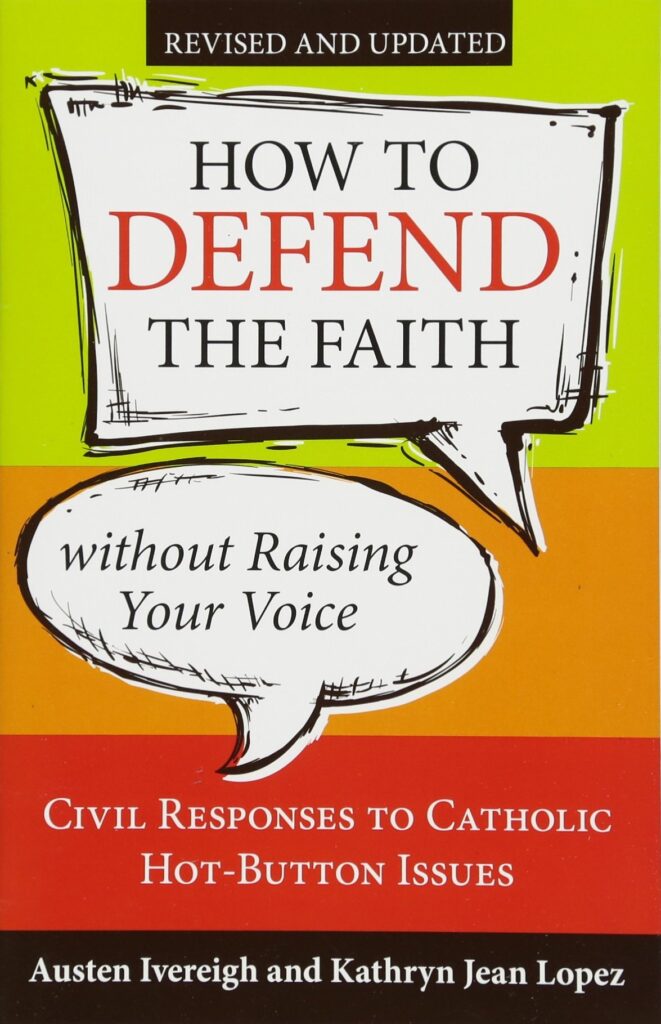José Maria C.S. André
Last Sunday, Pauline Books presented the Portuguese edition of Austen Ivereigh’s book How to Defend the Faith Without Raising Your Voice: Civil Responses to Catholic Hot-Button Issues. The book is interesting and the Portuguese edition has two more chapters, one of which is a valuable contribution to rethinking the Church’s presence in the world.
The story goes back to March 2010, when Benedict XVI’s visit to Britain was announced for September 16-19 of that year. The atheist leaders responded with a ferocious campaign. Richard Dawkins and Christopher Hitchens proposed that, on arrival, the Pope be put in jail and tried by the British courts. The press announced that the visit would cost £19 million, raising an outcry of scandal. The government was not against the visit, but the bureaucrats in charge of the organization suggested to launch a brand of condoms called “Benedict XVI” and that the program include a visit of the Pope to an abortion clinic and a marriage celebration of two homosexuals.
Shortly before, an important debate had taken place between leading personalities of atheism and a woman converted to Catholicism (university professor) and a bishop. The poll before the debate showed that half of the audience valued the role of the Catholic Church and the other half considered it negative. The performance of the diligent Catholics was so bad that, at the end, according to the poll, almost the entire audience was against the Church.
This was the situation when Austen Ivereigh (spokesman for the former Archbishop of Westminster, London) and Jack Valero (spokesperson for Opus Dei in the UK) decided to train a group of young people to intervene in the media. The new Archbishop of Westminster supported the idea and thus came the Catholic Voices, which prompted a real revolution. The impact of this new way of communicating shifted the public opinion in the UK in just a few weeks.
Imagine, for example, that a person of age blames the Church for being like a cranky old woman, insensitive to the youthful longing for premarital relations. On the other hand, two teenagers, a boy and girl, explain how tenderness and respect between lovers express their love, their commitment and help them mature and love each other ever more. Everybody recognizes that God is on the side of generosity and love; and that the attack on the Church reflects a vision fraught with disillusionment and selfishness. The way of communicating makes a big difference.
The initial plan was that Pope Benedict XVI travelled in a closed car to avoid confrontations with opponents, but meanwhile the prospect changed. Even in regions where there are few Catholics, such as Scotland, whole-hearted crowds welcomed the Pope, multitudes gathered in the streets to greet him when the popemobile was passing by. Seventy thousand people (many non-Catholic) filled Bellahouston Park for the Mass. In more Catholic regions, the reception was even warmer. Millions of people followed the TV broadcasts continuously, from morning to night.
Anglican Church authorities received the Pope cheerfully as a very dear friend. Representatives of Jews and other religions were moved. Before all the members of Parliament, with maximum solemnity, with Benedict XVI seated in the seat of prominence, the Speaker declared that “the presence here of the Pontiff, inconceivable in previous times, is now a completely natural thing” and that “the faith is not a relic of the past, but is embedded in political life, a part of its fabric.” The MPs applauded at length. The four days of the visit were really intense and, by the end of September 19th, Benedict XVI returned to Rome leaving a profoundly changed United Kingdom, charmed by his somehow timid kindness.
Austen Ivereigh’s book reviews the most controversial religious issues, proposing for each one of them that kind of constructive, true approach that inspired the boys and girls of Catholic Voices. However, one theme was missing. After all, the main one: we need to speak about God, not only about God-related controversies, but about God Himself. Austen Ivereigh and Jack Valero invited Pedro Gil to add this topic and that’s why this edition is even more useful and complete than the previous ones.
The need for this chapter corresponds to the danger of letting ourselves be dragged into the spirit of controversy, as Pope Francis warned: “with the selection of content made by the mass media, the message we preach runs a greater risk of being distorted or reduced to some of its secondary aspects. (…) [It] then seems identified with those secondary aspects which, important as they are, do not in and of themselves convey the heart of Christ’s message.” Therefore “the message has to concentrate on the essentials, on what is most beautiful, most grand, most appealing and at the same time most necessary” (Evangelii gaudium, 34, 35).
Yes, more attractive and more necessary. But more challenging also. This was the missing chapter of this book: How to talk about God.


 Follow
Follow


